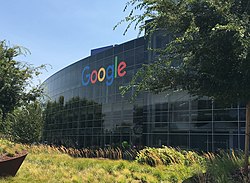How Does Google Make Money? Unraveling the Tech Giant's Revenue Streams

Ever stopped to wonder how Google, the platform you use for everything from finding the best pizza places to researching complex topics, actually makes money? After all, most of its services, from Google Search to Gmail and Google Maps, are completely free to use. It seems almost impossible that a company providing so much for free could be worth trillions of dollars. So, where does all that money come from? Let’s unravel the mystery behind Google's revenue streams and understand the fascinating business model of this internet behemoth.
From Humble Beginnings to Global Domination
Google's journey began in 1998 as a simple college project by Larry Page and Sergey Brin. Their mission? To organize the world's information and make it universally accessible and useful. Initially, Google was a straightforward search engine, a far cry from the multifaceted platform it is today. But the name "Google," inspired by the number "Googol" (a 1 followed by 100 zeroes), hinted at the vast amount of information this search engine aimed to index.
The Game-Changer: Google Ads
The year 2000 marked a turning point for Google. They introduced AdWords, now known as Google Ads. This revolutionary system allowed businesses to pay for displaying their ads on Google's search results pages, forever changing the landscape of online advertising.
Over the years, Google's product portfolio expanded beyond the search engine. Gmail, Google Maps, Android, YouTube (acquired in 2006), and Google Chrome all became household names, solidifying Google's dominance in the digital world.
Success Through Trial and Error
Google’s journey hasn’t been without its bumps. For every success story like Gmail or Android, there have been projects like Google Plus and Google Glass that failed to gain traction. However, these “failures” highlight a crucial lesson: "Failure is the mother of all successes." Google's willingness to experiment and learn from its mistakes has been key to its overall success.
Unpacking Google's Revenue Streams: It's All About the Ads!
Today, advertising forms the cornerstone of Google's revenue model. In 2022, Google raked in a staggering $280 billion, with a whopping 58% ($162 billion) coming from ads displayed alongside Google searches.
Here's a breakdown of Google’s primary revenue sources:
- Google Search Ads: These ads, appearing at the top of search results pages, are the cash cow for Google.
- Google Network Ads: Google partners with various websites to display ads, generating $32.78 billion in revenue.
- YouTube Ads: Those skippable and non-skippable ads you encounter while watching YouTube videos? They contributed a cool $29 billion to Google’s coffers.
- Google Play Store & Hardware: Google takes a cut from app sales on the Play Store and earns revenue from selling hardware like Pixel smartphones and Chromebook laptops, bringing in another $29 billion.
- Google Cloud: This cloud computing service rounds out the top five revenue sources, generating $26 billion.
The "Free" Lunch: How Does Google Offer So Much For Free?
It seems counterintuitive: How can a company giving away so much for free be so profitable? The answer lies in a clever two-pronged strategy.
1. The Freemium Model:
Google employs the "freemium" model, offering basic services for free while charging for premium features. Think Gmail's limited free storage or YouTube Premium's ad-free viewing experience. This model allows users to try before they buy, enticing them to upgrade for enhanced features and convenience.
2. Data Collection and Targeted Advertising:
This is where things get really interesting. Every Google search, YouTube video watched, and email sent provides Google with valuable data about our interests, preferences, and online behavior. This data, collected anonymously, is the fuel that powers Google’s highly effective targeted advertising machine.
How Google Ads Target You with Laser Precision
Google uses sophisticated algorithms and machine learning to create user profiles based on various factors:
- Demographics: Age, gender, location, language
- Interests: Search history, websites visited, videos watched
- Online Behavior: Purchase history, device usage, browsing habits
Advertisers leverage these data points to target their desired audience. Imagine you’re a small business owner selling handmade jewelry. You could use Google Ads to target your ads specifically to women aged 25-40 who have shown interest in fashion and handmade products.
This laser-focused targeting ensures that ads are relevant to the user, increasing the likelihood of clicks and conversions, which translates to higher revenue for Google.
Cracks in the Model: Privacy Concerns and the Rise of AI Chatbots
Despite its success, Google's advertising model faces emerging challenges. Growing privacy concerns, with users increasingly wary of data collection practices, pose a significant threat. Additionally, the rise of AI-powered chatbots like ChatGPT, which provide direct answers without ads, could disrupt the traditional search-based advertising model.
The Future of Google’s Business Model: Adapting to a Changing Landscape
Google is acutely aware of these challenges and is actively exploring new avenues for growth, including artificial intelligence and cloud computing. While advertising revenue is likely to remain a significant contributor, Google is diversifying its revenue streams to future-proof its business.
The Bottom Line: Google's Success Story and Its Impact
Google’s ability to provide valuable services while generating immense profits through advertising is a testament to its innovative business model. The company's relentless focus on user experience, coupled with its mastery of data analytics and targeted advertising, has propelled it to the forefront of the digital revolution. While challenges lie ahead, Google's history of adaptation suggests it's well-positioned to navigate the ever-evolving digital landscape.
Reference:
Watch this video for a deeper dive into Google's business model: [Insert YouTube Video Link Here]



COMMENTS